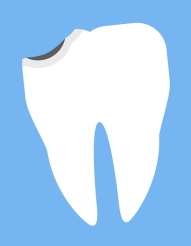DENTAL EMERGENCIES: COMMON CAUSES AND HOW TO AVOID THEM
A root canal in Belmont may be one of the most intimidating dental emergencies, but there are many reasons dental patients call an emergency dentist. Dental emergencies can range from the minor to the life-threatening. Whenever you suffer an injury that affects your teeth, gums, or mouth, your first step should be to contact your dentist. Keep reading to learn more about common dental emergencies, including a severe cavity, a broken tooth, and a broken jaw—and how you can avoid them.
Severe Cavity
If you suffer from severe tooth decay, you will most likely need a root canal on the affected tooth. While a root canal is sometimes required after unexpected trauma, many root canals are the results of cavities that have gone untreated. When tooth decay is not addressed by a dentist, it will eventually infect the inner tooth pulp. To avoid the kind of serious infection that requires a root canal, brush teeth twice daily with fluoride toothpaste and visit your dentist for regular teeth cleanings.
Chipped Tooth
A chipped, cracked, broken, or knocked-out tooth is one of the most common dental emergencies. Today, a dentist has many solutions for treating broken teeth. However, serious breaks are not just cosmetic problems—they are oral health risks. To avoid this dental emergency, always wear an athletic mouth guard when playing contact sports. Dentists advise patients to wear mouth guards even when engaging in solo athletic activities like running or rollerblading, as it is always possible to suddenly trip and fall.
Broken Jaw
A broken jaw is the most serious dental emergency. Broken jawbones sometimes involve hairline fractures to the healthy bone tissue, in which case a patient will usually feel mild to moderate pain. In severe cases, broken jaws lead to major swelling and bruising. Patients may not be able to align their teeth properly or close their mouths. Because broken jaws are almost always the results of major and unexpected trauma, such as that incurred after being tackled in a football game, it may be impossible to avoid this injury.

